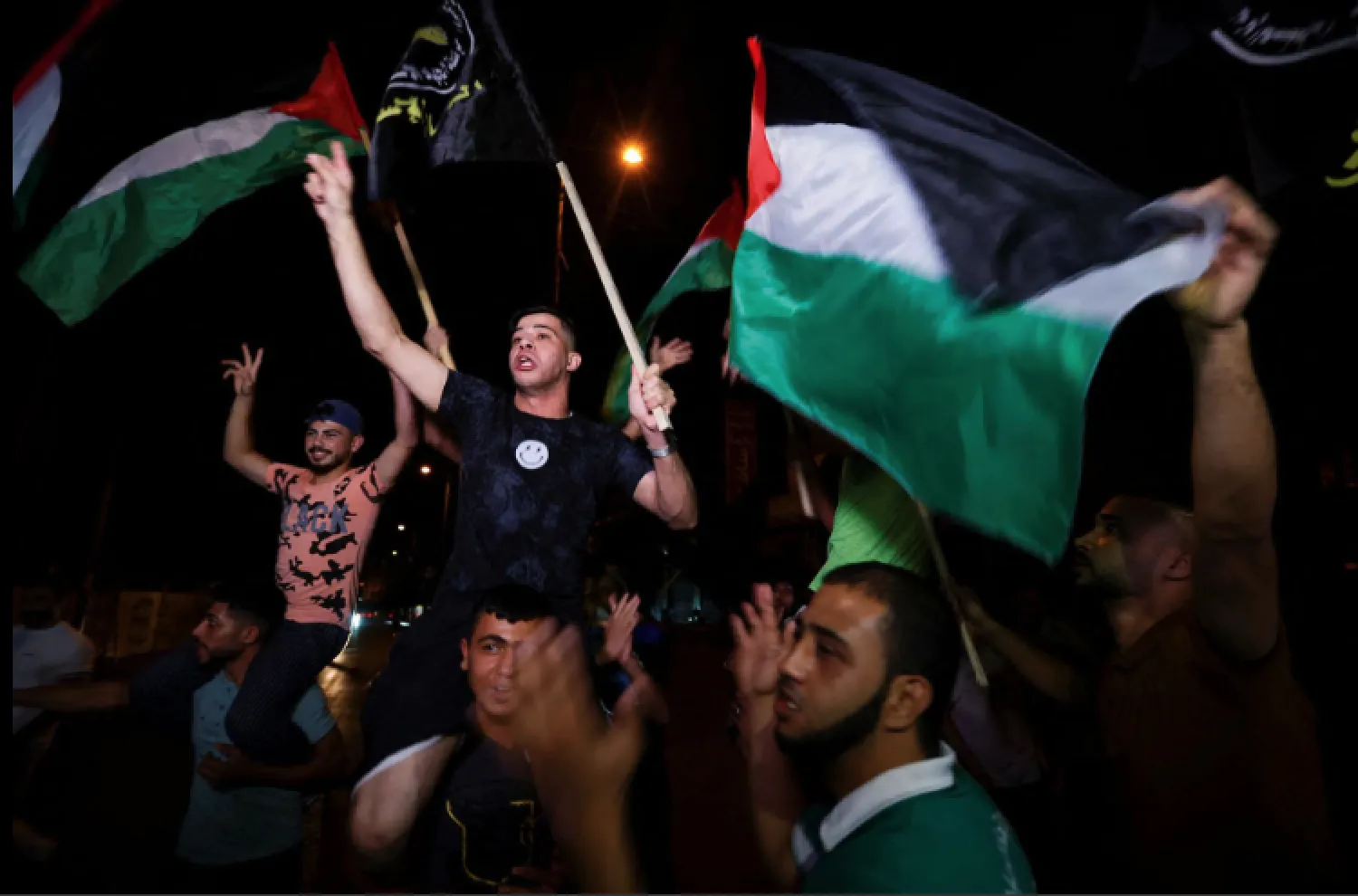Islamic Jihad Movement and Israel agreed on the terms of the Egyptian-brokered truce Sunday, after three days of heavy fighting that left 41 Palestinians dead.
Senior Islamic Jihad member Mohammad al-Hindi said in a statement that the "wording" of the Egyptian truce agreement was reached, including Egypt's commitment to work to release the two prisoners Bassem al-Saadi and Khalil Awawda.
Since Friday, Israel has carried out air strikes and heavy artillery, mainly bombardment in Gaza targeting the movement's positions. Islamic Jihad responded with hundreds of rockets.
According to the Ministry of Health in the Gaza Strip, the Palestinian death toll rose to 41 people, including 15 children, with 311 injured.
Sources said that the Egyptian intelligence, which mediated along with Qatar and the UN peace envoy, suggested three dates for the truce: Sunday at 10 PM, Monday at 2 AM, and Monday at 6 AM.
Another source in Tel Aviv said that if the Jihad continues to refuse, Israel will offer a unilateral ceasefire without an agreement, warning that it will respond forcefully and harshly to any violation.
The Israeli cabinet, the mini-ministerial council for politics and security affairs, concluded a meeting on the situation on the southern front, saying it accepted the Egyptian plan for a ceasefire after saying it had achieved most of its military objectives during the three-day campaign.
However, a senior Israeli official confirmed that the security services had prepared for a long process that would take an entire week. He claimed that the forces were able to continue for any time required.
An army representative explained that Islamic Jihad received a very severe blow, militarily and morally, as its rockets did not hit any significant Israeli targets, and most of them either fell in open areas or were shot down before reaching their destination.
Israel said a stray rocket fired by Islamic Jihad had killed several children in Jabalia, northern Gaza, on Saturday. It claimed to have "irrefutable" evidence that a stray missile fired by the movement was responsible for the deaths of several children in Jabalia on Saturday.
An Islamic Jihad official confirmed that the movement does not intend to stop and still has enough weapons. He announced that the movement owns a "surprise" weapon that could tip the scales in their favor, but the movement has not decided to use it.
Meanwhile, Hamas was widely criticized in Palestine for not participating in the fight against Israel.
Spokesman Hazem Qassem asserted that the resistance is present and ready and has many options to deal with the situation and the escalation of Israeli crimes.
Qassem indicated the groups were constantly talking about the truce, especially with Egypt, to stop the aggression against the Palestinian people.
He asserted that the issue was never in mediators or communications but rather in the occupation that does not respect the efforts and escalates its aggression against the Palestinian people.
The occupation assassinates leaders, kills civilians, including women, children, and the elderly, and deliberately hits homes in this barbaric way, said Qassem, adding that "these crimes amount to real, full-fledged war crimes."
On Sunday, Israeli Prime Minister Yair Lapid toured the headquarters of his army's Southern Military Command, accompanied by Defense Minister Benny Gantz, and assessed the situation.
The meeting was attended by the Chief of Staff, Aviv Kochavi, Lapid's Military Secretary, Major General Avi Gil, and the commander of the Southern Command, Major General Eliezer Toledano.
They toured the command-and-control centers, closely following the offensive operations launched from these centers. They spoke with soldiers serving there and with the commander and control center.









